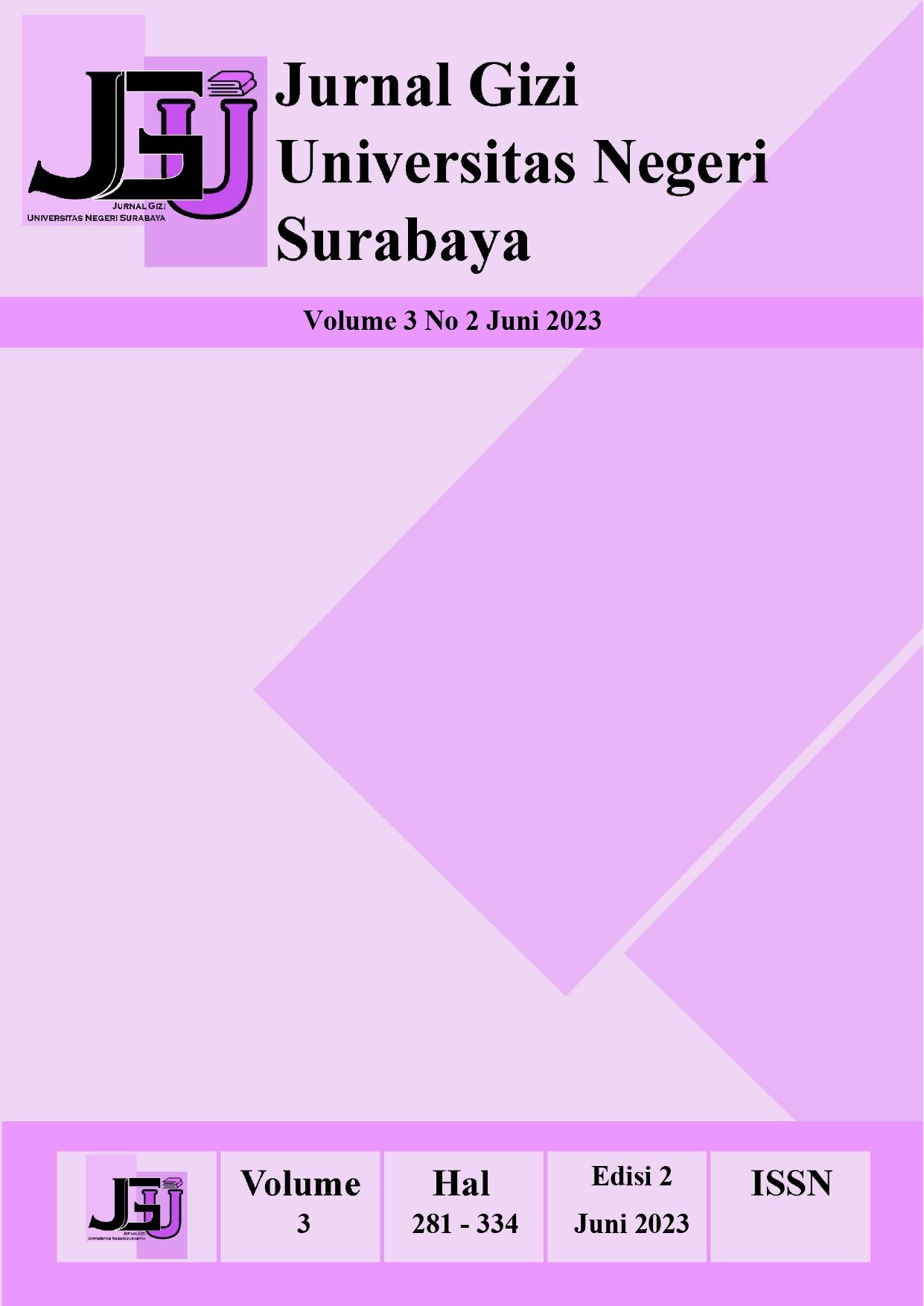Pengaruh Perilaku Makan dan Asupan Zat Gizi Makro dengan Status Gizi Anak Disabilitas Intelektual di SLB B-C Santi Mulia Surabaya
Keywords:
Eating Behavior, Macronutrient Intake and Nutritional Status, Perilaku Makan, Asupan Zat Gizi Makro dan Status GiziAbstract
Intellectual disability is a condition characterized by limited intelligence (<70 IQ scores). Children with intellectual disabilities have the power to depend on others due to their limitations. The existence of this dependence can lead to nutritional problems, changes in eating behavior and fulfillment of nutritional intake. The purpose of this study was to determine the influence of eating behavior and macronutrient intake with the nutritional status of children with intellectual disabilities at SLB B-C Santi Mulia Surabaya. This research method is quantitatively correlational with a cross sectional research design. The subjects in this study were the entire population of 25 elementary school students in grades 1-6 at SLB B-C Santi Mulia Surabaya and parents/caregivers of students. Data related to nutritional status were obtained from BB (weight) and TB (height) measurements, eating behavior data was obtained from filling out questionnaires filled out by parents/caregivers of students and macronutrient intake data was obtained from food recall interviews 2 x 24 hours with parents/caregivers of students. Data analysis using Chi-square test and Multiple Logistic Regression. The results of this study showed that the variable of eating behavior (p value 0.030), variable intake of macro-energy nutrients (p-value 0.003), variable intake of macrocarbohydrate nutrients (p value 0.001) affected the nutritional status of children and the variable intake of macro-protein nutrients (p value 0.250) did not affect the nutritional status of children. It can be concluded that the variables of eating behavior, macronutrients energy, carbohydrates and fats affect the nutritional status of children while macronutrients protein has no effect.Downloads
Download data is not yet available.
Downloads
Published
2023-06-26
How to Cite
Yustiana, V. (2023) “Pengaruh Perilaku Makan dan Asupan Zat Gizi Makro dengan Status Gizi Anak Disabilitas Intelektual di SLB B-C Santi Mulia Surabaya”, Jurnal Gizi dan Kesehatan Nusantara, 3(2), pp. 313–319. Available at: https://ejournal.unesa.ac.id/index.php/GIZIUNESA/article/view/52404 (Accessed: 11 February 2026).
Issue
Section
Artikel
 Abstract views: 282
,
Abstract views: 282
, PDF Downloads: 410
PDF Downloads: 410


